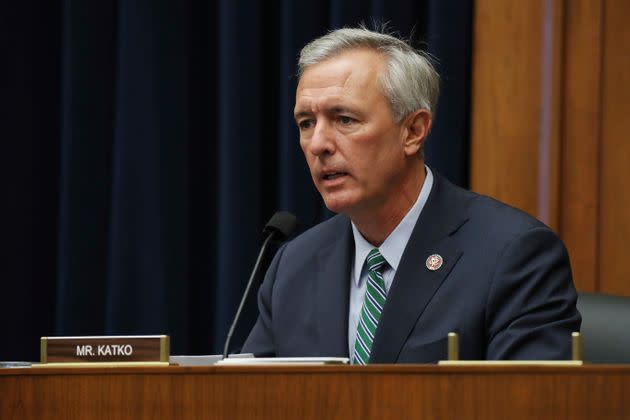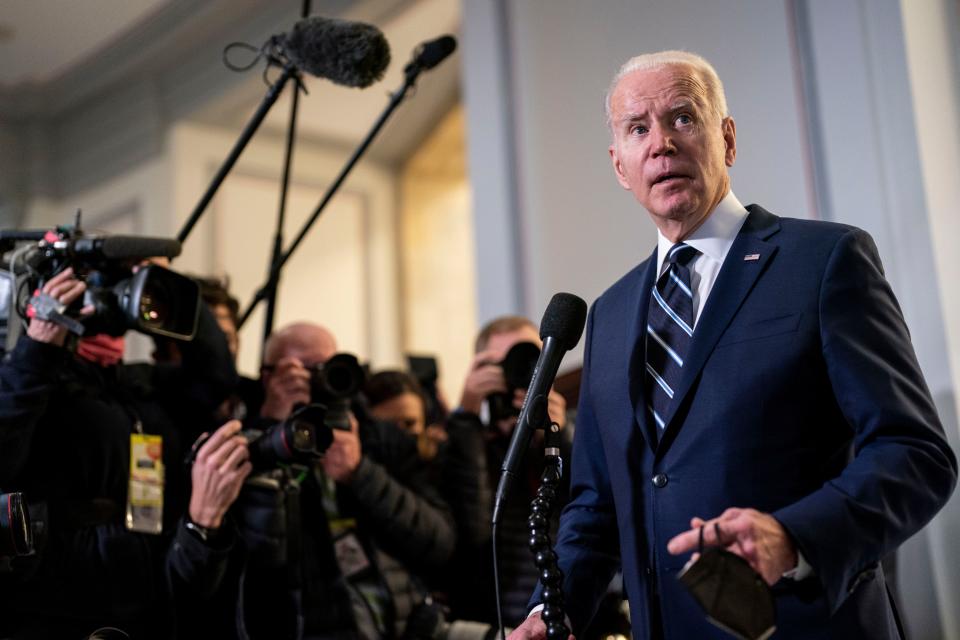Third Republican Who Voted To Impeach Trump Now Retiring
- Oops!Something went wrong.Please try again later.
- Oops!Something went wrong.Please try again later.
Rep. John Katko, a moderate Republican from central New York, announced his plans to retire on Friday, further highlighting the political price paid by Republicans who broke with former President Donald Trump.
Katko, who faced a primary challenge from Andrew McCarthy, a more pro-Trump Republican, is the third of 10 Republican members of the U.S. House who voted to impeach Trump after the U.S. Capitol riot on Jan. 6, 2021, to announce plans to retire.
Katko, a four-term incumbent and former federal prosecutor, was also likely to have to run for reelection in a less Republican district drawn by New York’s Democrat-dominated state legislature. The legislature has yet to approve the new boundaries.
“After 32 years of public service, I have decided not to seek re-election to Congress, so that I can enjoy my family and life in a fuller and more present way,” Katko said in a statement.
McCarthy, a self-described “America First” Republican and an intelligence analyst at an Air Force base in Rome, New York, criticized Katko’s decision to resign rather than face him in a primary.
“It’s a shame [Katko] quit on his people,” he tweeted on Friday. “I promise I fight to the death and will not let you down.”
McCarthy, who is running on a nationalist platform that combines strict immigration restrictions with plans like a public health insurance option, does not yet have the backing of the biggest names in the Trump universe, to say nothing of Trump himself.
His Friday tweet did elicit praise from former Trump adviser Steve Cortes, who called McCarthy’s bid “fantastic.”

Despite representing a Syracuse-area district won by both Hillary Clinton in 2016 and President Joe Biden in 2020, Katko had survived spirited efforts by national Democrats to unseat him in 2018 and 2020.
He succeeded by combining standard conservative positions — unlike some other New York Republicans, he voted for Trump’s tax cut bill — with the occasional votes that broke from GOP orthodoxy. He voted against Trump’s effort to repeal the Affordable Care Act, and for Biden’s bipartisan infrastructure bill.
Likewise, while Katko stuck with Trump during the House’s 2019 impeachment vote, he broke with the former president after last year’s attack on the Capitol.
“To allow the President of the United States to incite this attack without consequence is a direct threat to the future of our democracy,” Katko said in a statement following his vote. “For that reason, I cannot sit by without taking action.”
Katko later joined 34 other House Republicans in voting to convene a commission to investigate the Jan. 6 attack.
It’s unclear how much the political blowback Katko experienced from fellow Republicans for voting to impeach Trump figured in his decision to retire. In addition to the primary challenge, the Onondaga County branch of New York’s Conservative Party, which often backs Republican nominees, had announced in April that it wouldn’t be endorsing Katko this time around.
The symbolism is nonetheless unmistakable. Of the small group of Republicans who turned on Trump after the Capitol riot, Reps. Anthony Gonzalez (Ohio) and Adam Kinzinger (Ill.) have also already announced plans to step down.
Gonzalez, who announced his decision in November, was facing a primary challenge from Trump-backed Republican Max Miller.
And Kinzinger, who revealed his plans to retire in October, faced a challenge from pro-Trump Republican Catalina Lauf. Democrats’ decision to draw him into an intra-district contest with fellow Illinois Republican Rep. Darin LaHood was likely just as pivotal in his decision to retire.
This article originally appeared on HuffPost and has been updated.



